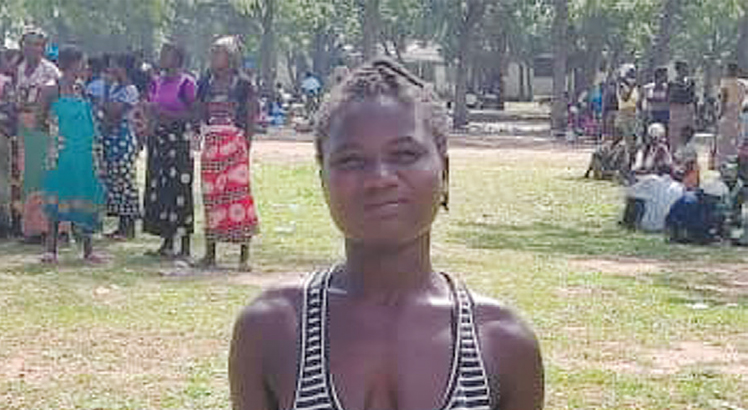Cyclone affects maternal health
Sunday evening, Monica Dimiwe, 36, and her family gathered around a small battery-powered radio to listen to the evening news.
During the day, word had spread in the village that a powerful cyclone had hit neighbouring Mozambique after making a landfall in Madagascar.
“The prospect of another cyclone was scary,” says Demiwe, who lives in Traditional Authority Mbenje, Nsanje. “We lived through the same experience with Cyclone Idai and then Cyclone Kenneth in 2019. We had to rebuild from scratch.”

I saw water rising
In hindsight, Demiwe wished she had moved her family to higher ground when she first heard about the cyclone.
Now it was too late. The nearest disaster shelter, Nyambese camp, is located about five kilometres away from her village. This is one of 18 evacuation camps sheltering displaced people in Nsanje.
The same evening, the weather suddenly changed. For almost six hours, the rains poured incessantly flooding the whole village. Cyclone Ana had arrived, causing widespread destruction
“I looked outside and saw the water levels rising. From prior experience, I knew we had to move to safety,” says Dimiwe, who is six months pregnant. “I alerted my husband who quickly gathered the kids. We braved the heavy rains and walked all night to the centre where we found so many people also seeking refuge from the floods.”
The next day, Dimiwe and her husband trekked back to their home to see whether they could salvage anything from their house. Their worst fears were confirmed.
Women and girls at risk
Where their houses stood were now paddling pools filled with rubble. Their food grain was gone, and their animals washed away.
“After seeing the destruction, I knew that Nyambese camp would be our home until the flood water subsides,” she says.
According to the latest Nsanje interagency assessment report, 83 060 people from 36 070 households were affected by the disaster. The displaced are staying in ill-equipped camps, posing health risks, especially to the pregnant women.
“I lost everything,” says Monica cupping her face in her shaking hands. “Even my health passport. I was supposed to go for antenatal clinic this week but travelling to the health centre is not possible. The roads are bad and still flooded.”
Access to Nsanje and Chikwawa by road remains a challenge. Medical supplies are running out of stock in the respective district hospital pharmacies, including lifesaving drugs like oxytocin which is key towards preventing on post-partum haemorrhage.
UNFPA’s response
UNFPA is working with the Ministry of Health’s Reproductive Health Directorate to facilitate a comprehensive assessment on the capacity of health facilities to provide safe deliveries.
Among other activities, the United Nations population agency is working to have the district hospital generator repaired and is planning to distribute reproductive health kits to affected communities in Nsanje and Chikwawa.
Says Young Hong, UNFPA Representative. “We will do everything to ensure continuity of quality sexual reproductive health services, including protection from gender-based violence during the emergency. “UNFPA will support recovery that will be aligned with long-term health system strengthening and resilience of the affected communities and individuals, especially women and women.”






One Comment